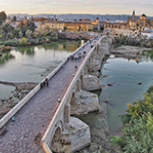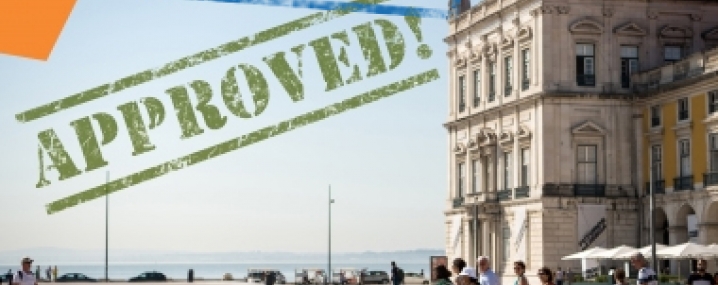
Córdoba
Cordoba is a city with an impressive cultural and monumental patrimony, with four inscriptions in the World Heritage List granted by the UNESCO. Its strategic position and the legacy of the different peoples who settled on its rich farming lands meant that Cordoba was always considered a privileged place.
In addition to its rich tourist, cultural and monumental offer, it offers its citizens and visitors a wide diversity of landscapes and natural values framed in the largest municipal area of Andalusia (spanning 1.255 km²). The city has a population of 325.708 inhabitants. The cultural and natural values of Cordoba are derived from the proximity that the Guadalquivir River offers, a well-defined countryside to the south, fertile and "pure" in the strict sense of the agricultural landscape and a Sierra, more than close, imbricated in the urban environment.
Its municipal district is mainly agricultural and has enough human capital to be able to reinforce and strengthen all the available resources in the agri-food sector, based on innovation and knowledge; with an open perspective from the international to the local.
The opportunity to exchange experiences with partner cities within projects like FOOD CORRIDORS offers Córdoba new tools to move forward on the path to a policy instrument, as well as an effective governance model, to develop and create new development concepts based on building a more local, environmentally friendly, sustainable, resilient, inclusive and diversified Agrifood System that ensures healthy and accessible food for the whole population of Cordoba, and that enhances local employment.


